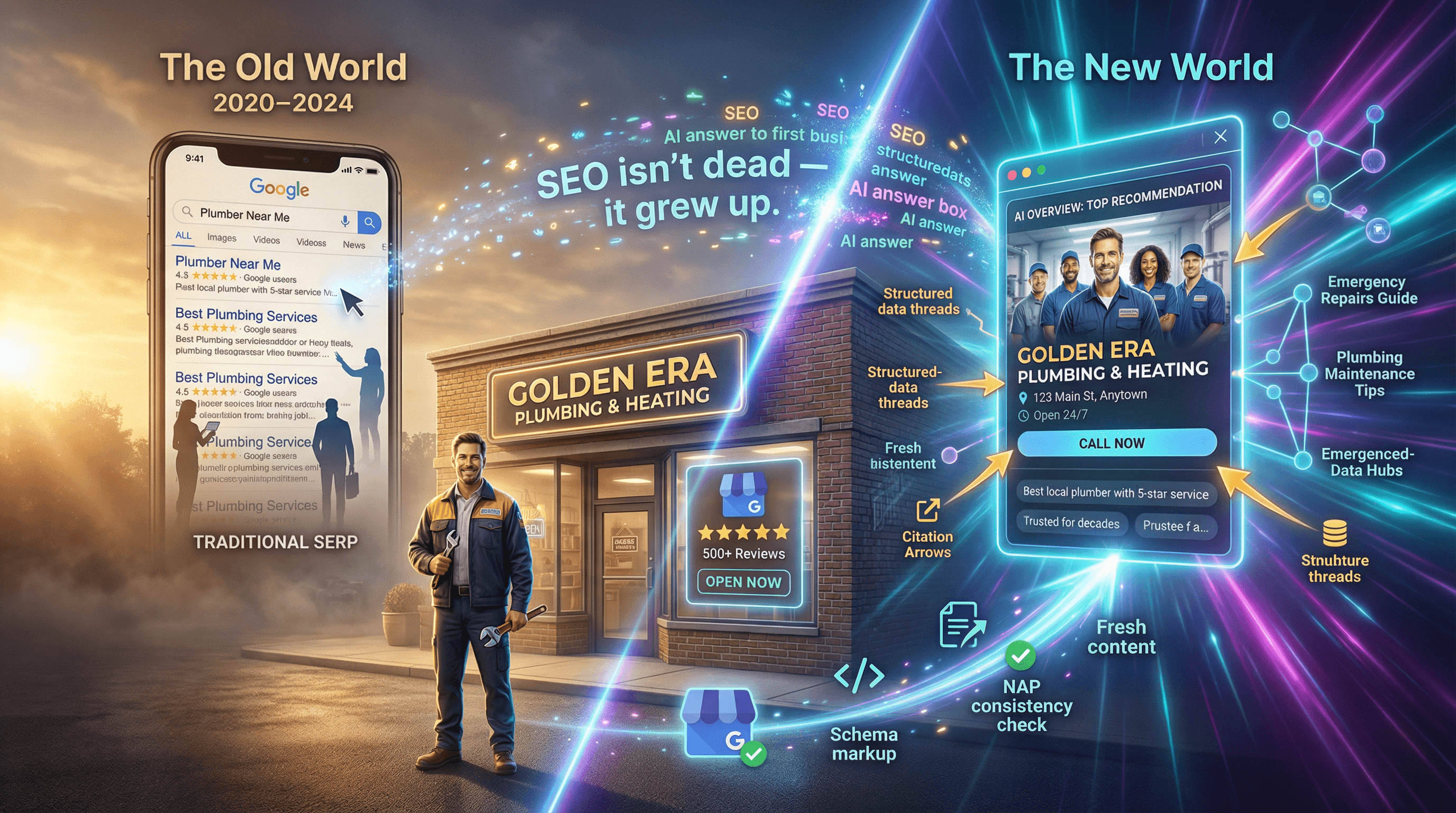Consulting
Unlock your potential as Growth Partners. Learn strategies for sales growth, building trust, and mastering your attitude for daily success.
In the world of sales, your energy is the real product you're selling every single day. It's not just about the item or service you offer; it's about the drive, the attitude, and the connection you bring to every interaction. As Growth Partners, understanding and managing this energy is key to building lasting relationships and achieving consistent success. Let's explore how to harness your inner drive and make every day a win.
Key Takeaways
Cultivate gratitude to fuel your workday and embrace a positive mindset for success as Growth Partners.
Focus on creating value for others and committing to personal promises to build trust and achieve goals.
Take proactive steps to conquer anxiety and embrace imperfect selling for continuous progress.
Prioritize understanding your prospect's story and communicate with clarity to build strong relationships.
Invest in your professional development and view challenges as learning opportunities to master the art of sales.
Harness Your Inner Drive for Growth Partners
Your energy is the engine that powers your professional life. It's not just about showing up; it's about bringing your best self to the table every single day. Think of it as your personal product, the one you're constantly selling to clients, colleagues, and even yourself. When you cultivate a strong inner drive, you're not just pushing through tasks; you're building momentum for sustained growth.
Embrace Gratitude to Fuel Your Workday
It sounds simple, maybe even a little soft, but practicing gratitude can genuinely change how you approach your day. When you start by acknowledging what you're thankful for, you shift your focus from what's lacking to what's abundant. This isn't about ignoring problems; it's about building a foundation of positivity that makes tackling those problems feel less daunting. A grateful outlook can make even the most routine tasks feel more meaningful.
Start your day by listing three things you're thankful for, big or small.
When a client interaction goes well, take a moment to appreciate the connection.
Recognize the effort your colleagues put in, and express your appreciation.
Acknowledging the good things, no matter how minor they seem, creates a ripple effect. It makes you more open to opportunities and more resilient when faced with setbacks. It's like tuning your internal radio to a more positive frequency.
Cultivate Value to Achieve Success
Success in sales isn't just about hitting numbers; it's about the value you bring to others. When you focus on genuinely helping your prospects and clients, you build something far more lasting than a single transaction. This means really listening to understand their needs, not just waiting for your turn to speak. It's about becoming a trusted advisor, someone they can rely on.
Always ask yourself: 'How can I genuinely help this person?'
Share insights and information that benefit your prospect, even if it doesn't lead to an immediate sale.
Follow up with resources or solutions that address their specific challenges.
Building deep, trust-based partnerships is key to accelerating growth and achieving lasting success. You don't have to operate alone; collaboration is powerful for accelerating growth.
Commit to Your Personal Promises
This is about integrity, both with yourself and with others. When you make a promise, whether it's to a client or to yourself to finish a report by a certain time, follow through. These personal commitments are the building blocks of reliability. If you say you'll call back at 3 PM, do it. If you promise to send information, send it promptly. These small acts build a reputation that speaks volumes, far more than any slick sales pitch ever could.
Actionable Strategies for Sales Growth Partners
Look, selling isn't always about having the perfect script or the most polished presentation. Sometimes, it's about just getting out there and doing the work, even when things aren't ideal. We all face those moments of doubt or that nagging feeling of anxiety before a call or a meeting. The trick is not to let it stop you. Instead, we need ways to push through.
Conquer Anxiety Through Proactive Action
Anxiety in sales often comes from the unknown or the fear of what might go wrong. The best way to fight this is to be prepared and take action. Think of it like this: if you're worried about a presentation, the more you practice and anticipate questions, the less anxious you'll feel. It's about taking control of what you can.
Here are a few things to try:
Know your stuff: Really understand your product or service inside and out. If you can explain it clearly and confidently, you'll feel more secure.
Prepare for objections: Think about the common reasons people might say no and have thoughtful responses ready. This isn't about being defensive; it's about being helpful.
Practice your pitch: Rehearse what you want to say, but don't memorize it word-for-word. You want to sound natural, not robotic.
Focus on the next step: Instead of worrying about closing the deal, concentrate on making the next call, sending the next email, or setting up the next meeting.
When you feel that knot in your stomach before a sales interaction, don't just sit with it. Get up, move around, do a few jumping jacks, or even just take a few deep breaths. Physical action can help clear your head and reduce that nervous energy. Then, channel that energy into your preparation and your outreach.
Embrace Imperfect Selling for Progress
Nobody expects you to be perfect. Honestly, trying to be too perfect can actually hold you back. It leads to overthinking and delaying action. It's better to make a slightly imperfect sale than to make no sale at all. Think about it – every interaction is a chance to learn and get better. If a call doesn't go exactly as planned, or if you stumble over a word, it's not the end of the world. You can learn from it and adjust for the next one. This mindset helps you keep moving forward.
Leverage Your Time for Maximum Impact
Time is probably the most valuable thing we have in sales. It's easy to get caught up in busywork that doesn't actually move the needle. We need to be smart about how we spend our hours. This means identifying the activities that bring the best results and focusing on those. It might mean spending less time on administrative tasks and more time talking to potential clients or following up on leads. Looking at how successful sales teams plan their year can offer some great ideas for strategic planning.
Consider this breakdown of how to think about your time:
Prioritize high-value activities: What actions directly lead to sales? Focus your energy there.
Batch similar tasks: Grouping tasks like making calls or sending emails can make you more efficient.
Schedule your day: Block out time for specific activities, including prospecting, follow-ups, and even breaks. Treat these blocks like important appointments.
Learn to say no: Don't get sidetracked by requests or tasks that don't align with your sales goals.
Building Trust and Relationships as Growth Partners

Prioritize Your Prospect's Story
When you're talking to someone about what you do, it's easy to get caught up in explaining all the cool features of your product or service. But honestly, most people don't care about that at first. What they really want is to feel heard. So, before you launch into your pitch, take a moment to really listen to what your prospect is saying. What are their challenges? What are they trying to achieve? Understanding their world is the first step to building a real connection.
Think about it like this:
Ask open-ended questions: Instead of "Do you need this?", try "What's your biggest hurdle with X right now?"
Listen more than you talk: Aim for an 80/20 split, where they're doing 80% of the talking.
Summarize what you hear: "So, if I'm understanding correctly, you're looking for a way to solve Y because Z is causing problems. Is that right?"
This shows you're paying attention and genuinely interested in helping them, not just making a sale.
Communicate with Clarity and Simplicity
Nobody likes feeling confused. When you're explaining something, especially something technical or complex, break it down. Use everyday language. Imagine you're explaining it to a friend who knows nothing about your industry. If you can't explain it simply, you probably don't understand it well enough yourself.
Here's a quick way to check your communication:
Avoid jargon: If a word sounds like it belongs in a textbook, find a simpler alternative.
Focus on benefits, not just features: Instead of saying "Our software has a cloud-based API," say "This means you can access your information from anywhere, on any device, without needing special software installed."
Use analogies: Sometimes a simple comparison can make a complex idea click.
Being clear isn't just about making sense; it's about making it easy for the other person to say 'yes' because they truly get what you're offering and how it helps them.
Establish Trust Before Discussing Features
People buy from people they know, like, and trust. It's that simple. You can have the best product in the world, but if no one trusts you, they won't buy from you. Trust isn't built in a single conversation; it's built over time through consistent actions and genuine interactions.
Think about building rapport:
Be reliable: Do what you say you're going to do. If you promise a follow-up, make sure it happens.
Be honest: If you don't know something, say so and find out. Don't try to bluff your way through.
Show empathy: Try to put yourself in their shoes and understand their perspective.
Only after you've laid this foundation of trust should you start talking about the specifics of your product or service. When trust is there, the conversation about features and pricing becomes much smoother and more productive.
The Power of Attitude in Sales Growth Partners
Think about it – your attitude is like the engine for your sales efforts. It's not just about knowing your stuff; it's about how you show up every single day. A positive outlook can genuinely change how you approach challenges and connect with people. It’s the difference between seeing a roadblock and seeing a chance to figure something out.
Cultivate a Positive Mindset for Success
It sounds simple, but actively choosing to see the good stuff really matters. When you start your day with a positive frame of mind, you're setting yourself up for better interactions. This isn't about ignoring problems, but about facing them with a belief that you can find a way through. It's about focusing on what you can control, like your effort and your outlook, rather than getting bogged down by things you can't.
Choose Motivation Over Misery Daily
Every day presents choices. You can wake up and focus on what's not going right, or you can find something to be motivated about. Maybe it's a client you helped yesterday, a new skill you're learning, or just the fact that you get to connect with new people. Motivation isn't always a lightning bolt; often, it's a quiet decision to keep pushing forward, even when it's tough.
Start your day with a quick win: Accomplish a small, easy task first thing to build momentum.
Focus on progress, not perfection: Celebrate small steps forward instead of waiting for the big win.
Practice gratitude: Take a moment to appreciate what's going well, no matter how small.
Invest in Your Professional Development
Your attitude is also shaped by how much you're willing to learn and grow. When you commit to improving your skills and knowledge, you build confidence. This doesn't mean you have to be an expert overnight. It means being open to feedback, seeking out new information, and understanding that learning is a continuous process. The more you invest in yourself, the more resilient and capable you become.
Your mindset is your most powerful tool. It dictates how you interpret events, how you react to setbacks, and ultimately, how successful you become. Cultivating a positive and growth-oriented attitude isn't just a nice-to-have; it's a requirement for long-term success in sales.
Mastering the Art of Sales with Growth Partners

Understand the True Meaning of Accomplishment
Selling isn't just about hitting numbers, though those are important. It's about genuinely helping someone solve a problem or reach a goal. When you shift your focus from just making a sale to making a real difference for your client, that's when you start to feel a different kind of satisfaction. It’s about the impact you have, not just the commission you earn. Think about it: when you've truly helped someone, that feeling sticks with you way longer than a quick win.
Shift from Pitching to Prescribing Solutions
Forget the old-school hard sell. Today's buyers are savvy. They don't want to be pitched at; they want someone who understands their situation and can offer a tailored solution. This means doing your homework. You need to really listen to what your prospect is saying, and sometimes what they're not saying. Ask good questions. Figure out their pain points. Then, and only then, can you suggest how what you offer can fix their specific problem. It’s more like being a doctor diagnosing an ailment and prescribing the right medicine, rather than just trying to sell a pill.
Listen actively: Pay attention to verbal and non-verbal cues.
Ask probing questions: Get to the root of their needs.
Connect your offering: Clearly show how you solve their specific problem.
Confirm understanding: Make sure they see the value.
Believe in Your Product to Sell It Effectively
This might sound obvious, but it's so easy to forget. If you don't genuinely believe in what you're selling, it's going to show. Your lack of conviction will leak out in your voice, your body language, and your answers to tough questions. You need to be your own first customer, in a way. Understand its benefits inside and out. Know its limitations, too, and be ready to address them honestly. When you truly believe your product or service can make a positive difference, selling becomes a lot more natural and a lot more effective. Your belief is contagious.
Selling is fundamentally about belief. If you don't believe in what you're offering, how can you expect anyone else to? It's about conviction, not just conversation. This conviction comes from understanding the real-world impact and value your product or service brings to the table for your clients.
Overcoming Challenges as Growth Partners
Silence Doubt to Pursue Your Dreams
That little voice in your head? The one that whispers 'you can't' or 'what if you fail'? Yeah, that one. It's a real buzzkill, isn't it? It's easy to let that doubt creep in, especially when things get tough. But here's the thing: your dreams are bigger than your doubts. You've got to actively push back against that negativity. Think about the times you've already succeeded, even in small ways. Those moments are proof that you've got what it takes. Don't let fear of what might happen stop you from trying what could happen. It's about taking that first step, even when you're not entirely sure of the path ahead.
View Failure as a Learning Opportunity
Nobody likes to mess up. It stings, right? But honestly, if you're not making mistakes, you're probably not trying anything new or pushing yourself. Think of failure not as an endpoint, but as a detour. It's a chance to figure out what didn't work and why. This feedback is gold. It tells you where to adjust your approach, what skills you might need to brush up on, or maybe even if the original plan was a bit off.
Here's a quick way to reframe setbacks:
Identify the core issue: What exactly went wrong?
Extract the lesson: What did this experience teach you?
Adjust your strategy: How will you do things differently next time?
Move forward: Don't dwell; apply the lesson and keep going.
Develop Simple Disciplines for Daily Success
Big goals can feel overwhelming. That's where small, consistent actions come in. Instead of trying to overhaul everything at once, focus on building a few simple habits. These aren't about grand gestures; they're about showing up every day and doing the work, even when you don't feel like it. Discipline is what carries you when motivation takes a break.
Consider these daily disciplines:
Morning Routine: Start your day with a clear intention. Maybe it's 15 minutes of planning, a quick review of your top priorities, or even just a moment of quiet reflection.
Focused Work Blocks: Dedicate specific times to tackle your most important tasks without distractions. Even 30-60 minutes of uninterrupted focus can make a huge difference.
End-of-Day Review: Briefly look back at what you accomplished and what's on deck for tomorrow. This helps you close out the day with a sense of progress and preparedness.
The path to success isn't always a straight line. It's often a winding road filled with unexpected turns. Embracing challenges, learning from every stumble, and building consistent daily habits are the tools that help you navigate that journey effectively.
So, What's the Takeaway?
Look, selling your energy isn't some fancy trick. It's about showing up, being present, and putting your best self out there, day after day. Think about it – that spark you bring to a conversation, the genuine interest you show, even just your willingness to tackle a tough task. That's what people buy into. It’s not always about having the perfect pitch or knowing all the answers. Often, it’s just about being a person someone wants to work with. So, keep that energy up, stay authentic, and remember that what you bring to the table is often the most important thing you sell.
Frequently Asked Questions
What does it mean to sell your energy every day?
Selling your energy means bringing your best attitude and effort to work each day. It's about being positive, driven, and focused on helping others, which in turn helps you succeed.
How can being thankful help my work?
When you appreciate what you have, it gives you a good feeling. This positive energy can make your whole workday better and help you tackle tasks with more enthusiasm.
Why is it important to create value for others?
Focusing on helping others and providing value is the best way to become successful. When you help people reach their goals, success often follows naturally.
How can I stop feeling anxious about sales tasks?
The best way to beat worries is to take action. Instead of thinking about what might go wrong, just start doing the task, like making that phone call. Action helps calm your nerves.
Should I wait until my sales pitch is perfect?
No, it's better to get things done than to wait for perfection. Don't be afraid to make a sale even if it's not absolutely flawless. Progress is more important than waiting for the 'perfect' moment.
How does my attitude affect my sales?
Your attitude is super important! Sales often depend more on how you approach the sale than on the other person. Staying positive and motivated helps you make more sales.
























































































